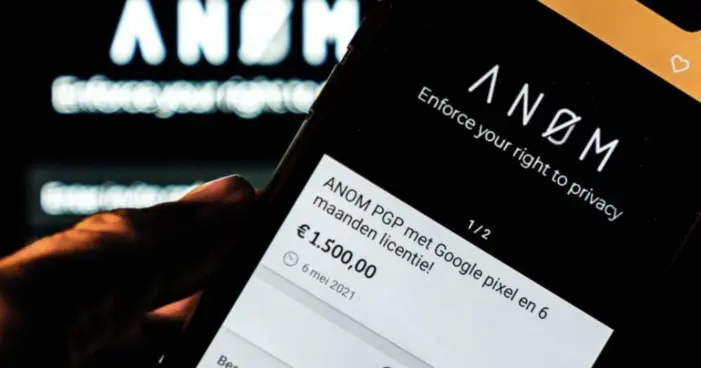
Two main suspects of a mega case about large-scale trade in cocaine and other drugs will be released for the time being. The court in Zwolle has also postponed the substantive hearing of the case, which was to start today, for an indefinite period of time. The reason is that the court finds that the lawyers and the suspects have had insufficient time and opportunity to view hacked chats from encryption service An0m on the computer. These messages are the main evidence in the case.
Hansken
It concerns hundreds of thousands of messages from encryption service An0m. At the Netherlands Forensic Institute (NFI), all messages hacked by the police from various services such as EncroChat and An0m have been made accessible in a system called Hansken.
Tests
In court cases, the police and judiciary always select a group of cracked messages for evidence. To test this evidence, and to collect exculpatory material, lawyers and suspects always want to look at other messages as well.
Lawyers used to be able to access Hansken online only at certain times at a police station. The NFI is now also giving lawyers access online at their offices.
In practice, however, this access regularly causes problems. Suspects can only view those messages in the presence of their lawyer who has access. But in certain regimes, lawyers are not allowed to bring a laptop or a telephone into the PI. If a suspect is suspended, they can read messages at the law office, if it has a connection.
Do not open
That access was a problem in the major 26Does case, an investigation by the national public prosecutor’s office in which HL, from the region of The Hague, and the Italian JA are the main suspects. The case is before the court in Zwolle.
Lawyers Michel van Stratum, Esther Blok and Ruben Poppelaars had told the court that they only had online access to the messages shortly before the substantive treatment, and their clients certainly did not.
Content treatment
There were also other problems. For example, suspects were repeatedly sent USB sticks with their files that they could not open on their computer. Data was also missing, or the data on the sticks did not match those in the file.
After almost a year, the suspects still had not received the correct USB sticks. Moreover, the suspects were still unable to listen to conversations recorded by the detectives.
Electronic supervision
Due to all these problems, the court decided to indefinitely postpone the substantive hearing, which had been set aside for five days from today. In addition, the court determined that not five but eight days will probably be needed. Due to the long duration, the main suspects are now also free for an indefinite period (under electronic supervision), the others were already free.
Capacity problems
The Public Prosecution Service resisted because there is a risk of flight and because it concerns serious offenses for which a prison sentence of 12 years or more can be given. The court acknowledged those grounds, but allowed the length of the criminal proceedings and the interests of the suspects to weigh more heavily.
Lawyer Michel van Stratum: ‘The court has stayed the case and suspended both suspects partly because of the passage of time, so that they can still adequately prepare for their criminal case outside the detention center, also by means of browsing the Anom messages in Hansken at the law firm. This decision may also have consequences for other Anom cases, also because the NFI has capacity problems in providing the defense with the extensive Anom datasets in a timely manner.’






